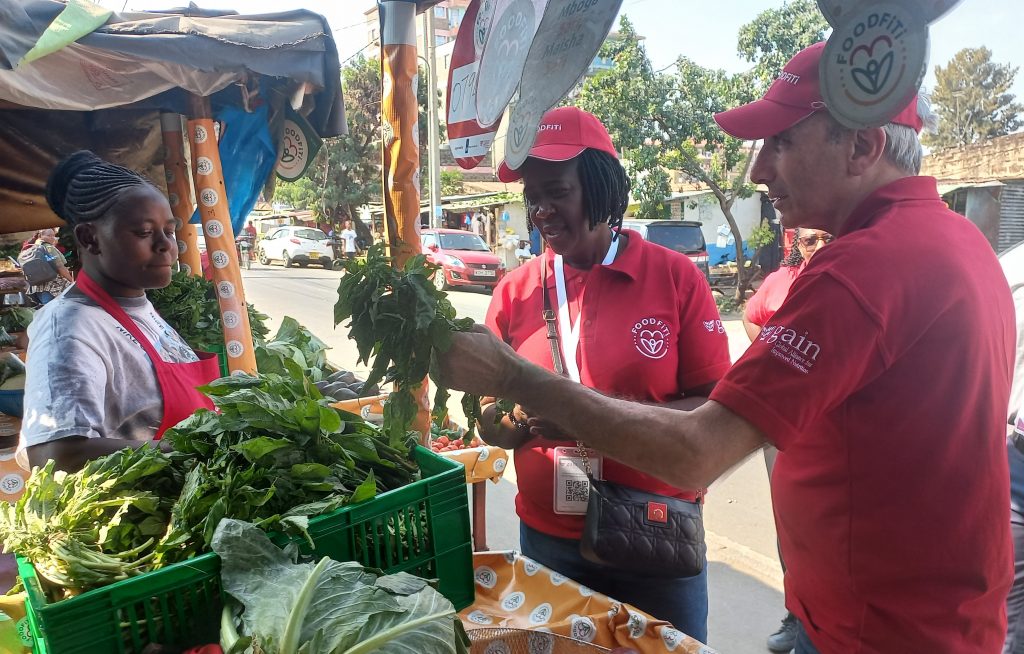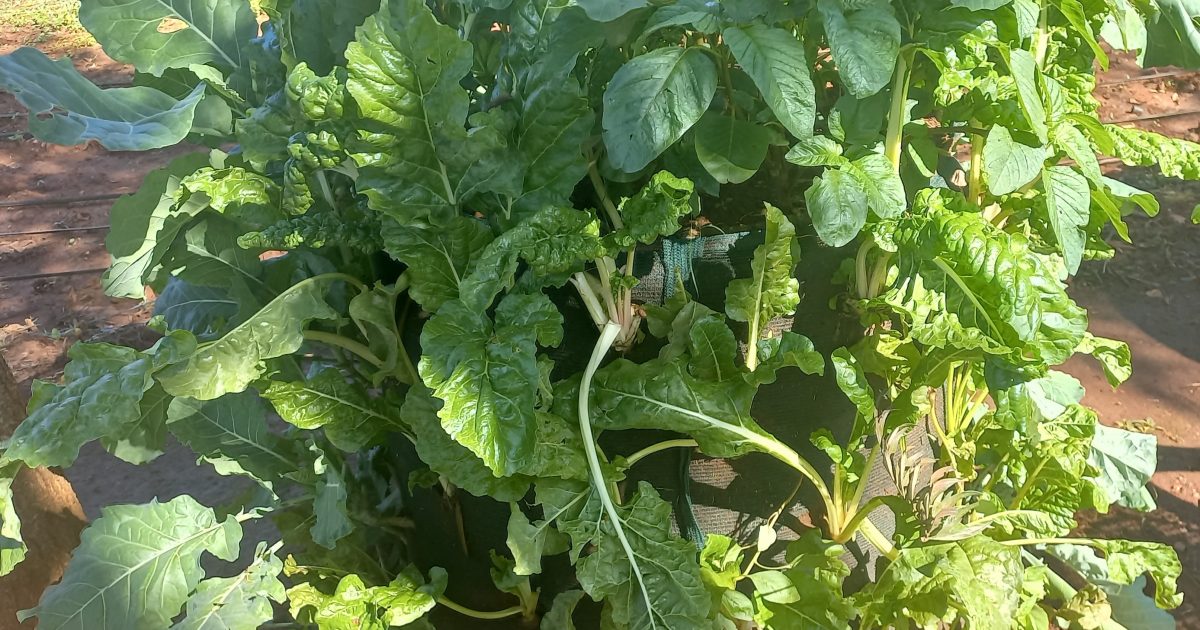The Global Alliance for Improved Nutrition (GAIN) has been developing a new market-based approach to scale up programmes aimed at improving diets.
(GAIN),a Swiss-based foundation launched at the UN in 2002 and has been working with both governments and businesses to transform food systems to deliver more nutritious food for consumers
Kenya is the first country to roll out the approach that is being deployed at scale in which GAIN has developed a nutritious food brand christened FoodFiti (FF) to promote healthy feeding.
The Food Fiti is the first nutritious food category being promoted with vegetables FoodFiti Zones (FFZs) as the last mile point of purchase to deliver the consumers’ expectations on freshness, safety, proximity, variety and taste.
The FFZs have been conceived as catchment areas around low-income estates in urban and peri-urban areas and cover a minimum of 1000 households in which at least 50 percent are low-income earners and established in Kiambu, Nairobi, Machakos, Mombasa and Nakuru Counties.
During a GAIN Board Field Visit in the Counties of Nairobi and also Kiambu, Ruth Okowa, the Country Director of GAIN in Kenya said the vegetable for all programme has been to improve on consumption of vegetables and also on variety.
“Most Kenyans eat either cabbages, sukuma wiki, or spinach. We want to improve on that, looking at the green leafy vegetables, the traditional vegetables and the ingredients in the vegetables”, she added
The program she explained aims to reach directly 1.2 million people and indirectly over 5 million Kenyans.
:We have been working with the ‘Mama Mbogas’, we have trained them on the importance of eating and stocking a variety of vegetables. We have been working also with market facilitators who are basically their suppliers and also teaching them on hygiene”, Okowa said
She noted that many Consumers especially from Nairobi are deterred from eating vegetables due to hygiene situations and that is what the programme is trying to advocate , ensuring vegetables are from an hygienic environment and are safe.
Okowa told KNA that GAIN has now started to work with Counties to construct cold rooms where storage of remnants of vegetables and also fruits can be done to minimize wastage.
“ My call to action to Kenya is to please eat vegetables which help us in enforcing our micronutrient levels like vitamins, zinc and iodine which according to studies are very low. We however can get all this from consumption of the vegetables”, She said.

The County Director further urged the government to provide an enabling environment in terms of setting up policies and guidelines that will improve on the consumption of vegetables, looking at the supply chain, which is basically the Small Medium Enterprises (SMEs) who are huge in the production supply chain of vegetables.
Lawrence Haddad, Executive Director of GAIN said most people across the world do not eat enough vegetables especially the dark leafy vegetables and yet they are an important source preventing all forms of diet related diseases from undernutrition, diabetes, overweight, obesity and micronutrient deficiencies which means not enough vitamins and minerals leading to diseases , early mortality and even death.
He noted that the challenge has been nutritious foods with lots of vitamins and minerals being expensive and therefore GAIN through the programme has been trying to reduce the price by cutting out middle men who are not necessary by improving infrastructure so there is less food lost and wasted, increase in production which drives the prices down .
“We are trying to get healthier food into government programs like school programs and social safety net programs. We are trying to make food safer so that they do not have to be thrown away because they are unsafe. All of these different things make food more available and therefore more affordable”, Haddad said.
He was impressed by the project which has seen Mama Mbogas running several stalls proud of the clean environment they are selling the fresh food from and who are also going beyond just selling the vegetables but talking to their customers on nutrition.
The biggest vulnerability in the program he however noted has to do with the market facilitators who are connecting the Mama Mbogas with the producers.
“We need to make sure that there is enough of a business model for these facilitators to really do the connection and this means market and road infrastructure need to improve, there is need to be better testing of food safety, safety labs, less red tape when you move vegetable from one County to another and these are all things that the government can really help with” Haddad said.
He called upon the Kenyan government to realize that Diets are going to become unhealthier unless something is done about them and this will have a big impact on the economic productivity and a big burden on the health system.
“Health diets are expensive for lots of people, but we are working hard with the Government and other partners to reduce the price of healthy foods, and as they become more affordable, they become more of a business proposition and so if you are a business person, get in ahead of the game. Do not be silent. Unhealthy Diets are going to kill you”, Haddad said
Agneta Ayera, a vegetable vendor , who has been selling varieties of vegetables including the traditional ones said she has learned through training on how the vegetables can fill your body with fiber that also helps in digestion.
“Training has helped me a lot. I have learned a lot of things that I didn’t know. For example, they taught me how to prepare the vegetables, I used to put my vegetables on the floor but now I got a clean surface for displaying my vegetables, I never had a shade for my “kibanda” but I got one and I also put on a clean apron and this has made me gain more customers”, Avera added.
The GAIN project established last year will by the end of this month June 2024 aim to reach 4.7 million low-income consumers to increase vegetable consumption.
The World Health Organization (WHO), recommends eating a minimum of 400g of fruit and vegetables a day to lower the risk of serious health problems, such as heart disease, stroke and some types of cancer.
By Wangari Ndirangu




